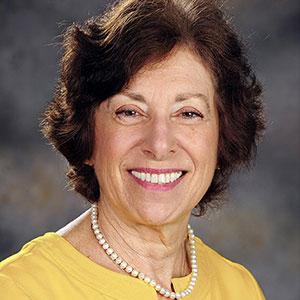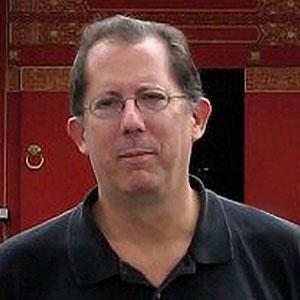A Speaker Series
Toxicology and Societies: The Impacts of Chemicals in Our Lives - The Perils of PFAS

WHEN
Thursday, June 3, 2021
11:00 a.m. -12:00 p.m. PDT
LOCATION
Online
Zoom
PRICE
Free
Check out this video to watch the The Perils of PFAS.
Brought to you in partnership with Huxley's Institute of Environmental Toxicology and Chemistry and the WWU Alumni Association
Please join us for the final speaker for the academic year in our series on Toxicology and Societies: The Impacts of Chemicals in our Lives.
PFAS compose thousands of compounds which persist in the environment forever and “new” PFAS are found all the time. A diverse group of chemical compounds, PFAS are used for industrial and consumer products, being found in pots and pans, clothing, food paper packaging, and firefighting foams (AFFF) leading to water, soil, dust, and air contamination. Essentially all Americans are exposed, with blood levels reflecting water and food contamination. PFAS-related health concerns began in the 1960s, and the study of people contaminated by DuPont living in the vicinity of Parkersburg, WV revealed strong associations with cancer, high blood pressure, high cholesterol, thyroid impacts, and ulcerative colitis, among other health effects. Other studies, both human and animal, have shown immunotoxicity, diabetes, and impacts on development of the fetus and infant. Thus, PFAS are multi-system toxicants at all stages of life.
The “long chain” PFOA and PFOS are being replacement with related “short chain” alternatives which are just as environmentally persistent even if they are eliminated more rapidly from biota but are harder to remove from water. While only a limited number of the newer “short chain” PFAS have been tested, all have shown essentially the same effects as the legacy long chain compounds. Many scientists are suggesting that PFAS be regulated as a class. Federal regulations are limited, with EPA only issuing a lifetime health advisory for PFOS and PFOA, and FDA has regulated a limited number in food packaging. Congress has legislated that the Department of Defense and domestic airports stop using PFAS-contained AFFF. States are moving ahead with 11 states considering a ban on PFAS in food packaging, 27 states considering policies focusing on PFAS in multiple media, including 7 states which have established regulatory levels of PFAS in drinking water. Wisconsin, which has over 30 known PFAS contamination sites, released a PFAS Action Plan last December, and is leading a 22-state coalition pushing for federal drinking water standards. International action is building to take action on PFAS, with the EU chemical strategy towards a toxic-free environment calling for a ban and development of innovations to provide safe substitutions for PFAS.
Our vision in developing this series was to support a better understanding of something that affects all of us. There are over 300,000 chemicals being produced and used in almost everything we wear, eat, and drink. How can you ever hope to understand when and where you or your family might be at risk from some of these chemicals? The short answer is, you can’t know everything about all of these substances, but you can learn more about how toxicology (the study of toxic substances) affects you and your society.
This seminar series aims to help you better appreciate, understand, and evaluate the many ways that manufactured chemicals interact with all humans on Earth.
More information about the speaker series is available here.

Linda Birnbaum
Speaker
Linda S. Birnbaum, Ph.D., D.A.B.T., A.T.S. is the former Director of the National Institute of Environmental Health Sciences (NIEHS) of the National Institutes of Health, and the National Toxicology Program (NTP). After retirement, she was granted scientist emeritus status and still maintains a laboratory. As a board-certified toxicologist, Birnbaum served as a federal scientist for 40 years. Prior to her appointment as NIEHS and NTP Director in 2009, she spent 19 years at the U.S. Environmental Protection Agency (EPA), where she directed the largest division focusing on environmental health research.
A native of New Jersey, Birnbaum received her M.S. and Ph.D. in microbiology from the University of Illinois at Urbana-Champaign
Learn more about Linda.

Ruth Sofield
Co-Host
Ruth Sofield is a Professor of environmental toxicology and chemistry in the College of the Environment. She received her PhD and MS in Environmental Science and Engineering at the Colorado School of Mines. Ruth’s research group focuses on the effects of water and air pollution. Their current projects include the aquatic toxicity of microplastic and tire wear particles, and the use of moss as a biomonitoring tool for particulate matter. Ruth is a member of the Puget Sound Partnership Science Panel and the President of the Pacific Northwest Society of Environmental Toxicology and Chemistry.

Tracy Collier
Co-Host
Tracy Collier received his PhD in Fisheries Sciences from the University of Washington. He has worked for over 45 years as a toxicologist, with more than 35 of those years spent at NOAA’s Northwest Fisheries Science Center, where he served as the director of a science division that employed up to 100 people, covering several disciplines, including environmental toxicology, analytical chemistry, harmful algal blooms, and watershed processes. He has over 175 scientific publications, and currently is an affiliate faculty at Western.
Questions and Accommodations
Contact the Western Alumni Association for this event. Feel free to call at (360) 650-3353 or email at alumni@wwu.edu if you have any questions or comments.
There will be auto-captions available for this event. To request closed captions, please mark the request on the registration form. Advance notice of three days to one week is appreciated.